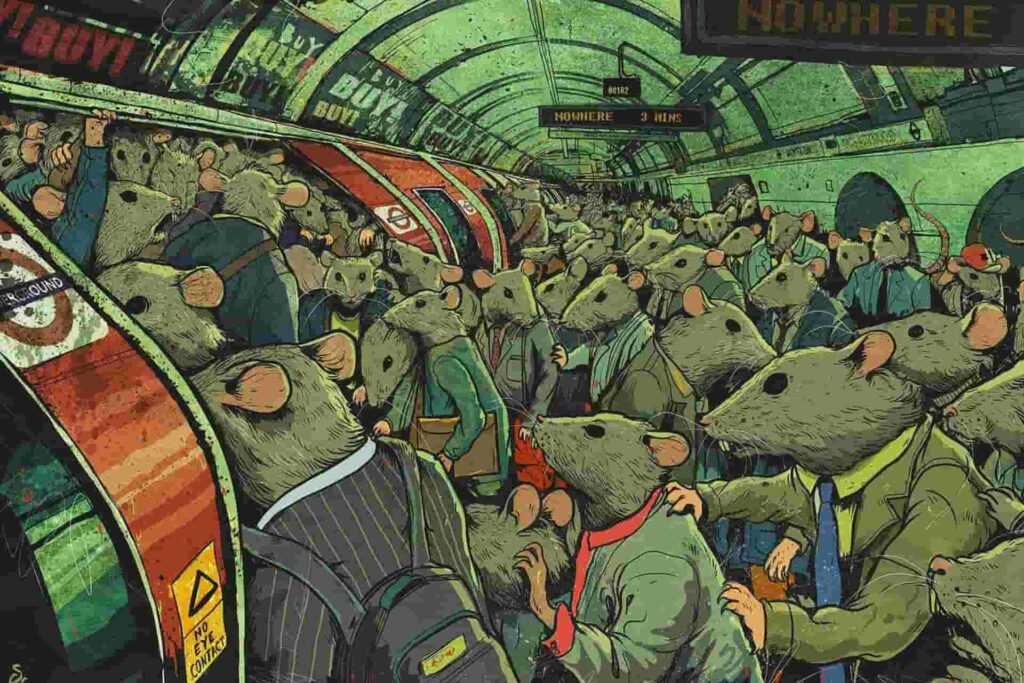Have you ever felt overwhelmed by the number of options you have to make in your life? Whether it’s choosing what to wear, what to eat, what to watch, what to buy, what to study, what to do, or who to be with, you may have experienced the paradox of choice. The paradox of choice is the idea that having more choices can actually make us less happy and more stressed than having fewer choices.
You may think that having more choices is always better, because it gives you more freedom and control over your life. You may think that having more choices allows you to find the best option that matches your preferences and needs. You may think that having more choices makes you more satisfied with your decisions and outcomes.
But research has shown that this is not always the case. In fact, having too many choices can have negative effects on your well-being and behavior. Here are some of the reasons why:
- Having too many choices can cause decision fatigue. Decision fatigue is the mental exhaustion that results from making too many decisions in a short period of time. When you have too many choices, you have to spend more time and energy evaluating and comparing them, which can drain your cognitive resources and impair your judgment. Decision fatigue can make you more likely to avoid making a decision altogether, or to make a hasty or irrational decision that you may regret later.
- Having too many choices can increase your opportunity costs. Opportunity costs are the benefits that you give up when you choose one option over another. When you have too many choices, you have to consider more trade-offs and sacrifices that you have to make for each option. This can make you more aware of what you are missing out on, and increase your regret and dissatisfaction with your choice. You may also experience FOMO (fear of missing out) or FOBO (fear of better options), which can make you feel anxious and unhappy about your decision.
- Having too many choices can raise your expectations. When you have too many choices, you may assume that there is a perfect option out there that will meet all your desires and needs. This can raise your expectations and standards for what constitutes a good choice. However, reality may not live up to your expectations, and you may end up feeling disappointed and dissatisfied with your choice. You may also blame yourself for making a bad choice, or wonder if you could have made a better choice if you had searched more or longer.
- Having too many choices can reduce your satisfaction. When you have too many choices, you may experience post-decisional dissonance. Post-decisional dissonance is the psychological discomfort that arises when you doubt or regret your choice after making it. When you have too many choices, you may be more prone to question your choice and compare it to the alternatives that you rejected or did not consider. This can reduce your satisfaction and happiness with your choice, and make you less likely to stick with it or appreciate it.
So how can we overcome the paradox of choice and make better decisions for ourselves? Here are some tips that may help:
- Limit your choices. Instead of trying to consider all the possible options, try to narrow down your choices to a manageable number that meets your criteria and goals. You can use filters, categories, rankings, ratings, reviews, recommendations, or other tools to help you eliminate irrelevant or inferior options. You can also set a deadline or a budget for yourself to limit the time or money that you spend on making a decision.
- Simplify your choices. Instead of focusing on all the features, attributes, or outcomes of each option, try to focus on the most important ones that matter to you. You can use heuristics, rules of thumb, or shortcuts to help you simplify your choices and make them easier to compare and evaluate. You can also use defaults, presets, or standards to help you choose an option that works well for most people or situations.
- Satisfice your choices. Instead of trying to find the best or optimal option, try to find a good enough or satisfactory option that meets your minimum requirements and expectations. You can use satisficing, a strategy that involves settling for an option that is good enough rather than searching for the best one possible. Satisficing can help you save time and energy, reduce regret and disappointment, and increase satisfaction and happiness with your choice.
- Commit to your choices. Instead of second-guessing or regretting your choice after making it, try to stick with
















































































Who is Sarah Huckabee Sanders?
vaibhav washniker